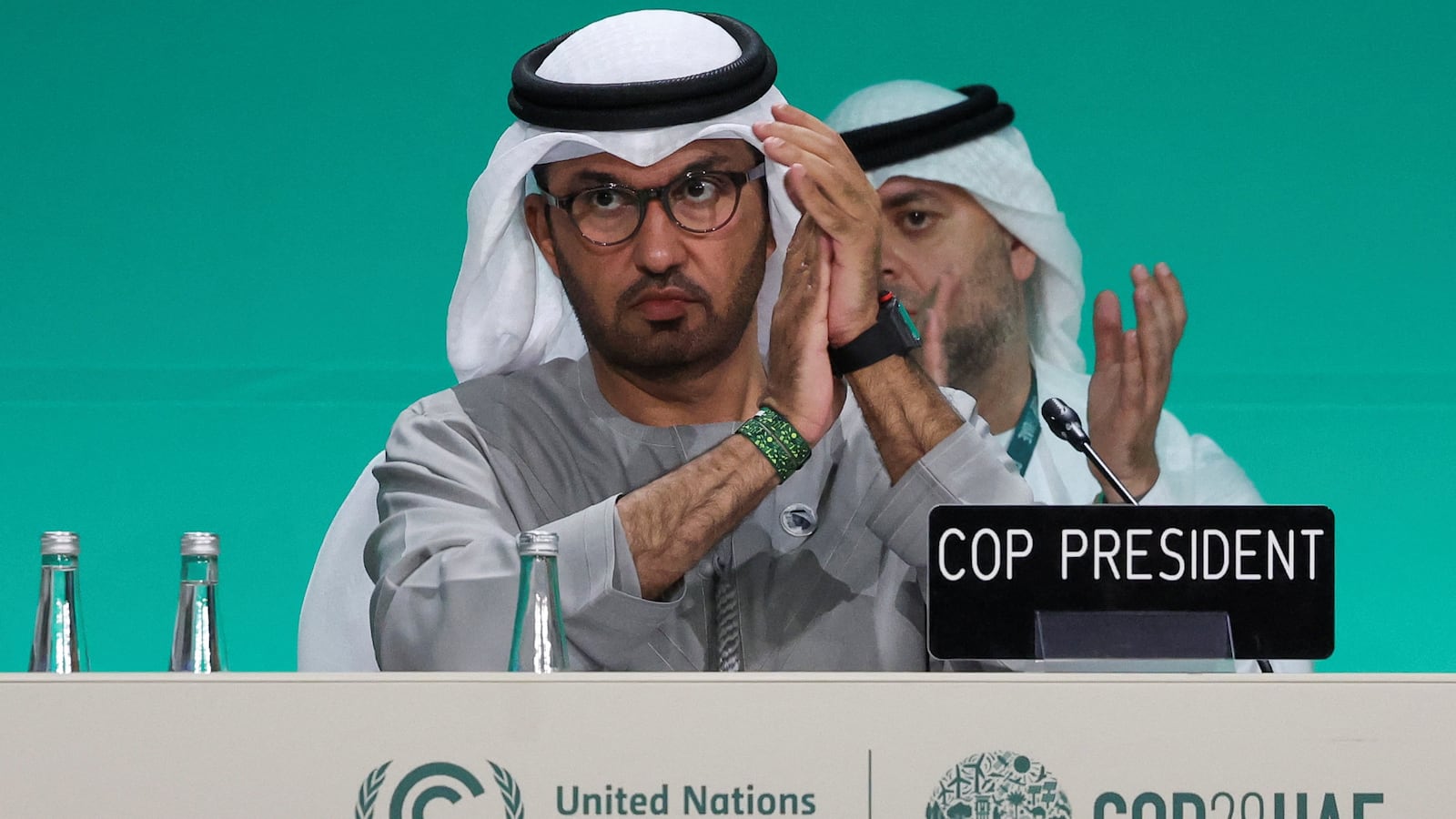Negotiators from almost 200 countries at the COP28 climate summit entered into an agreement Wednesday to start moving away from the use of fossil fuels, the first time nations have explicitly called to drop energy sources like oil, coal, and gas in order to avoid the most severe effects of global heating.
The pact was sealed in Dubai after two weeks of lengthy talks about the language of the deal, with countries divided on how far the agreement should go. COP28 President Sultan Al Jaber hailed the “historic” accord but said its success would ultimately be in its implementation around the world.
“We are what we do, not what we say,” he said at the summit. “We must take the steps necessary to turn this agreement into tangible actions.” While some critics of the deal say it does not go far enough, others celebrated the fact that, for the first time in the 28 years that nations have assembled to address climate change, an agreement has been approved that clearly calls for action on fossil fuels.
“This is a moment where multilateralism has actually come together and people have taken individual interests and attempted to define the common good,” U.S. climate envoy John Kerry said after the deal was adopted.
Al Jaber, who also serves as the CEO of the UAE’s oil company, also heralded the plan as being “led by the science.” “It is an enhanced, balanced, but make no mistake, a historic package to accelerate climate action, he said, adding: “We have language on fossil fuel in our final agreement for the first time ever.”
There was dissent, however, most notably from Samoa’s lead delegate, Anne Rasmussen, who said small island nations had not even been in the room when Al Jaber announced the deal was done. She said parts of the deal represented business as usual, which could “potentially take us backward rather than forward,” adding that “the course correction that is needed has not been secured.” She received a standing ovation from delegates after she finished speaking.
The terms of the deal specifically call for “transitioning away from fossil fuels in energy systems, in a just, orderly and equitable manner,” with a view to reaching “net zero by 2050 in keeping with the science.” The agreement also calls for tripling the use of renewable energy globally and doubling energy efficiency.
The pact is not legally binding, however, and participant countries cannot be legally compelled into action. Fossil fuels still account for about 80 percent of the world’s energy supply, and some argue that the agreement will not reduce the globe’s reliance on oil, coal, and gas quickly enough.
“The problem with the text is that it still includes cavernous loopholes that allow the United States and other fossil fuel producing countries to keep going on their expansion of fossil fuels,” Jean Su, energy justice director of the Center for Biological Diversity, told the Associated Press. She said such loopholes constitute a “pretty deadly, fatal flaw in the text.”





